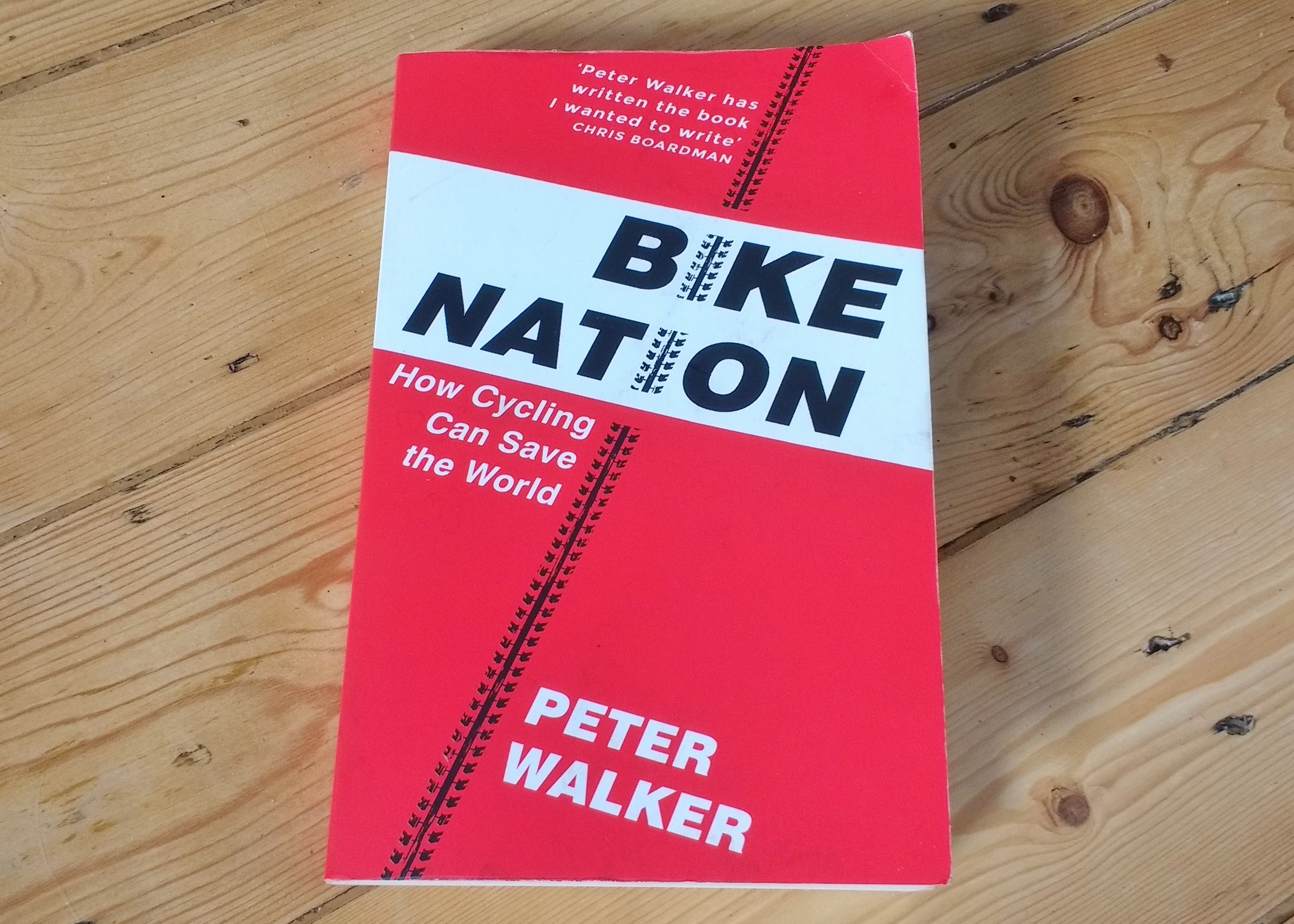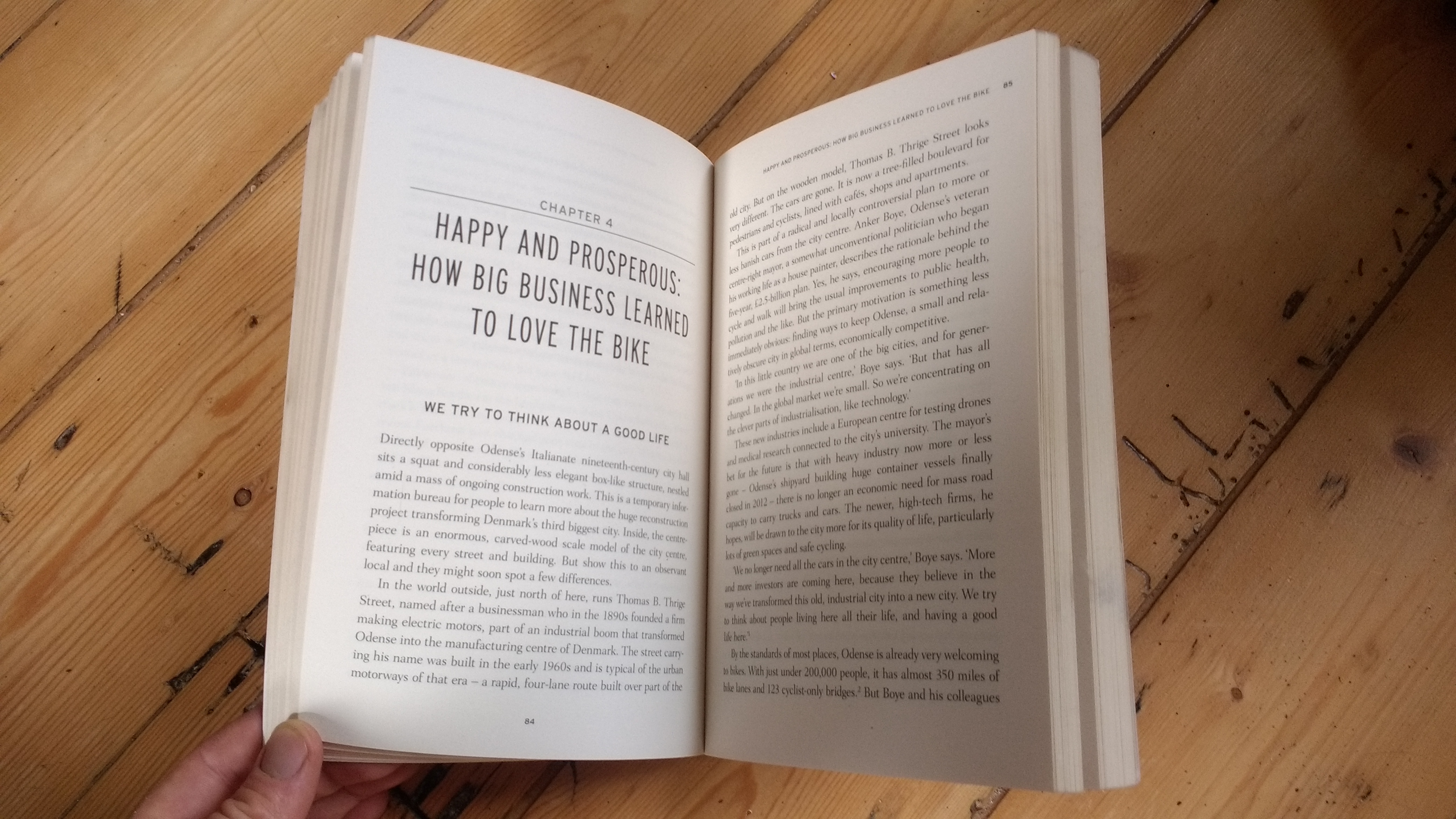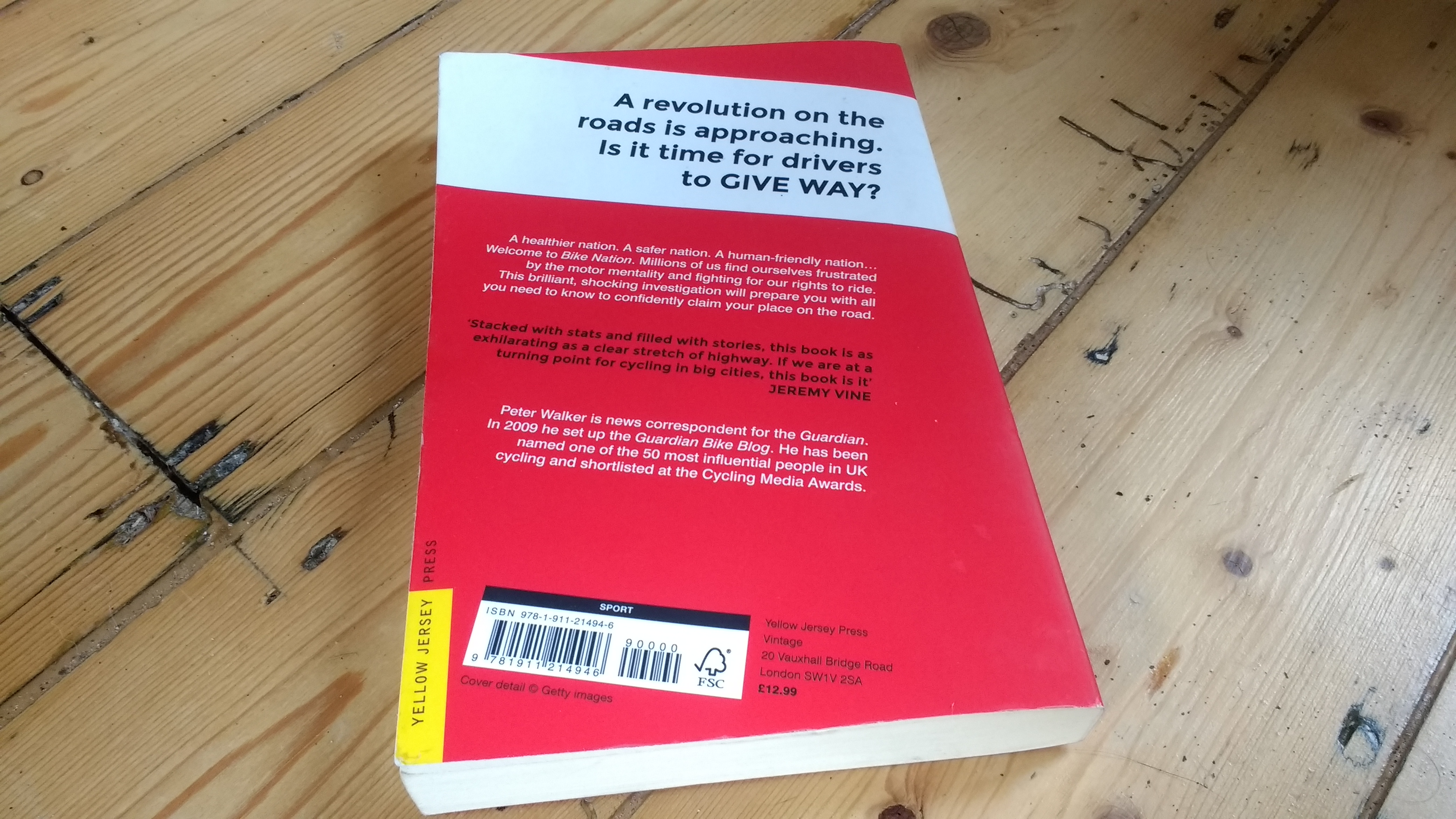I’m going to start this review by drawing a subtle but important distinction. There’s cycling as a sports and leisure activity. And then there’s cycling as a normal, everyday mode of transport. There’s no denying that in Britain we excel at the former, with a slew of Olympic medals, Grand Tour wins and World Championships to prove it. But when it comes to cycling as a no-frills way of getting around, we’re pedalling on the spot. Britain’s cycling levels plummeted in the late 1950s, and have never really recovered. Our roads are an uninviting place for novice or young cyclists, our justice system seems to regard the frequent deaths and injuries of vulnerable road users as tragic mistakes (unless the perpetrator happens to be riding a track bike), and I regularly read online opinions about cyclists that might get you a visit from the police if they were directed at any other vulnerable minority group. We’re also facing some big, scary problems, from caring for a population that does less and less physical activity, all the way up to irreversible man-made climate change. This is a very timely book.
Peter Walker is a political columnist at the Guardian, and when it comes to writing in a calm, fact-heavy tone that still manages to hold your attention, there are few that can match him. He’s also been one of the newspaper’s regular writers on cycling for several years now, and for this book he clearly had a wealth of material to draw on. There is some great writing about everyday cycling out there, much of it in blog form – check out As Easy As Riding A Bike, A View From The Cycle Path and this parish’s very own Bez – but while these are full of good analysis and insight, I still feel like writing on the web carries less weight than a long-form publication. Also, if you go to your local Waterstones and look in the cycling section, you’ll see reams of writing about sportspeople and adventurers, but virtually nothing about what cycling can do for society. So any attempt to widen people’s appreciation of cycling beyond Grand Tours and world tours is welcome.
The writing is a mix of personal anecdotes – Walker’s battle with asthma for example – snippets of interviews, success stories from around the world, and decent scientific evidence to back up his arguments. There are history lessons from the Netherlands, and the UK too. It’s clearly written for a very general audience, but well researched enough that even cycling advocacy nerds will find some new material to make use of.
Walker examines how injuries and deaths through road traffic are normalised, with the UK’s legal system sadly playing a key role. We meet campaigners like Cynthia Barlow, who bought shares in a construction company whose lorry killed her daughter so she could go to its annual meetings and ask its directors to upgrade their vehicle safety (they did). He also looks at the social aspects of cycling, and points out that the UK’s current conditions make it seem like a much more niche activity than it is in many other countries, with women, children and the less able-bodied effectively excluded by hostile conditions.
The economic arguments are also given an airing. One of the most difficult battlefronts has been to convince people that bikes are good for business, and this book gives a decent overview of the points in favour, including healthier staff, more attractive workplaces, and saving the costs of private motor vehicle parking. The economics of parking are particularly fascinating: have a listen to the Freakonomics podcast on the subject to get a sense of how just one aspect of private motor vehicle use places a huge burden in places where road space and real estate are already in high demand. Higher levels of cycling offer an alternative to the current situation in many cities, where we’re not just tied to using cars, but also forced to find places to keep them when we’re not using them.
Being a journalist, Walker has probably read more frothing comments section rants than anyone should have to deal with. So it’s fitting that an entire chapter of this book is taken up with an examination of attitudes towards cyclists, particularly the way they’re singled out for invective by newspaper columnists, commentators and politicians. The book deconstructs this attitude with the help of some psychology (basically, we’re an “out group” in society, and therefore an easy target for the ranters). It also argues that this creates a toxic environment which puts cyclists in danger – witness the sabotage stories that inevitably accompany major cycling events these days, Velo Birmingham being the the most recent. This isn’t something we can solve by just growing a thicker skin.
The penultimate chapter of the book tackles one of the most polarising subjects in contemporary cycling: helmets. He speaks to some of the advocates of compulsory helmets, including emergency doctors and people who’ve seen a family member suffer a severe head injury, and carefully unpicks their arguments by keeping the emphasis clearly fixed on overall public health, rather than just reducing one particular type of harm. I know it’s a really emotive subject and that a lot of mountain bikers can’t envisage going on a ride without one, but I’m glad Walker has covered this topic, as it encapsulates one of the recurring problems faced by cycling (and walking) in the UK: our habit of throwing back responsibility for safety on vulnerable road users, even when it’s completely outside their control.
Overall this is a great summary of the challenges facing cycling, as well as the opportunities it presents to transform our cities and our lives. It’s accessible enough to be read by anyone, regardless of their knowledge of cycling, and I’d happily drop a copy in every town hall or transport authority’s office in the UK, like a sustainable transport version of a Gideon Bible. It’s also imbued with an empowering sense of optimism, particularly around the recent developments for cycling in London. We have a huge amount of work to do if we want to turn cycling back into an attractive, safe form of everyday transport in the 21st century. But this book sets out the why and the how as elegantly as anything I’ve read.







